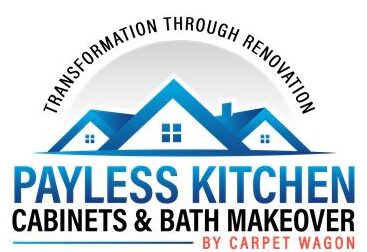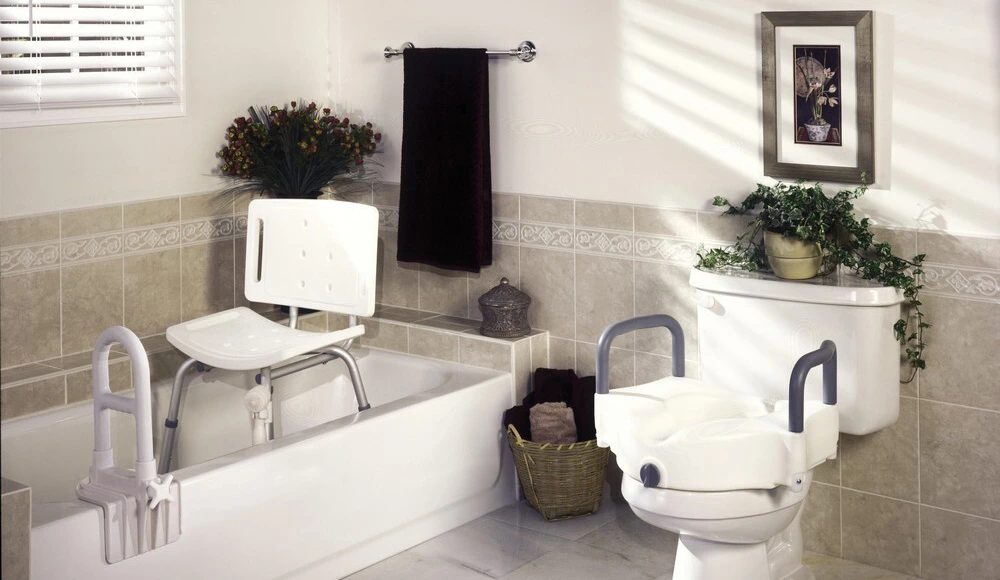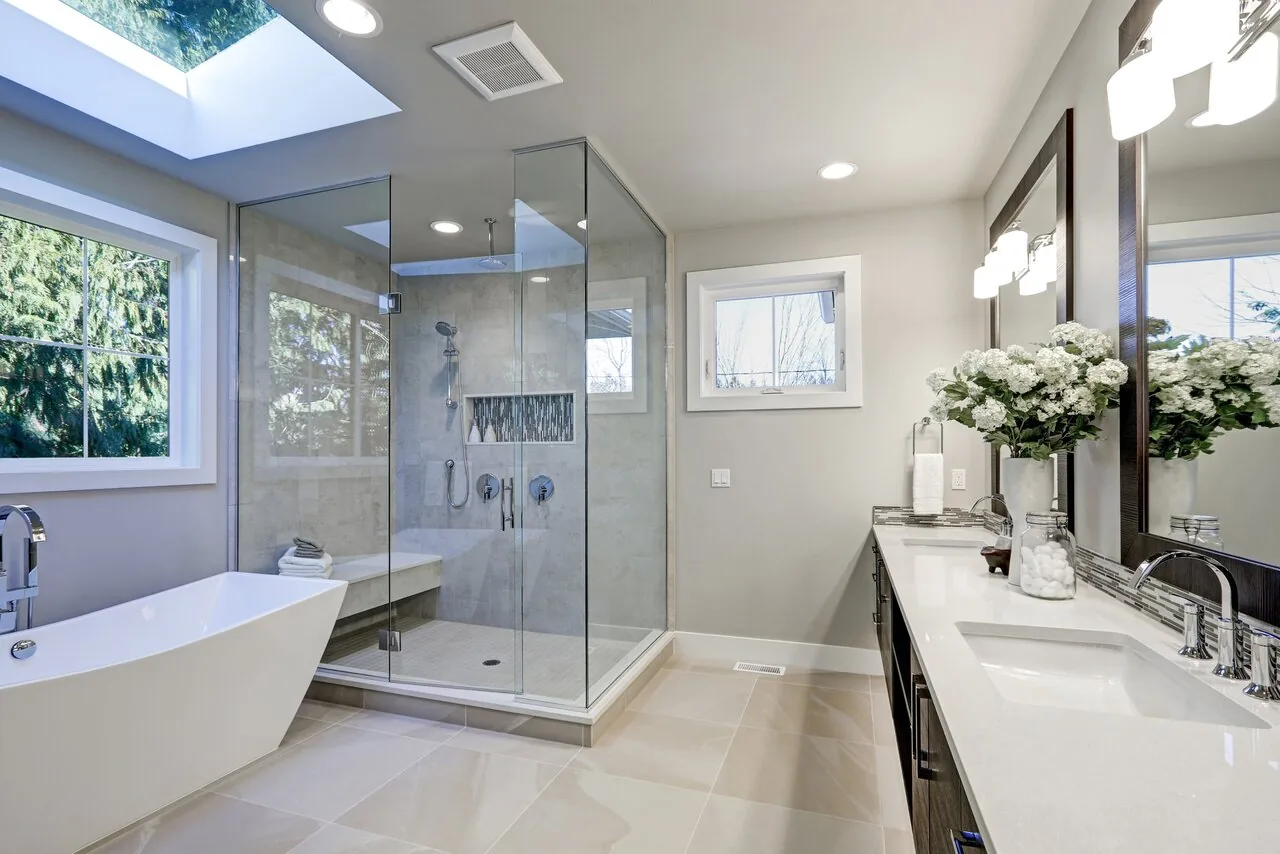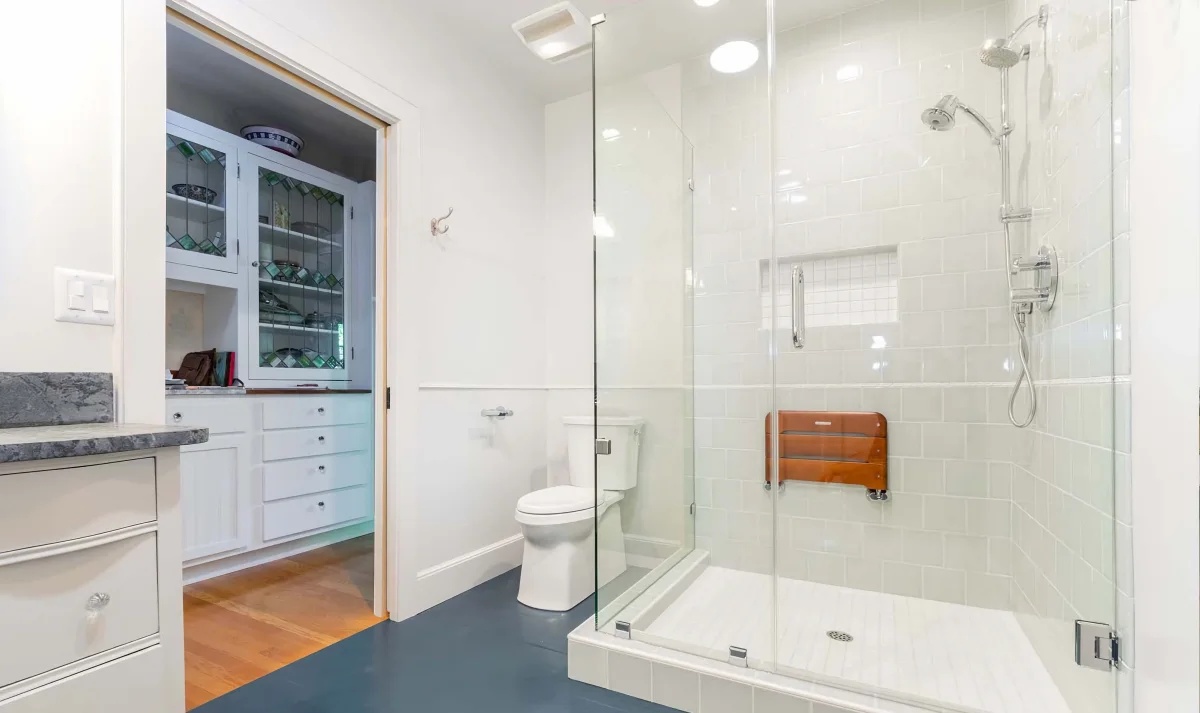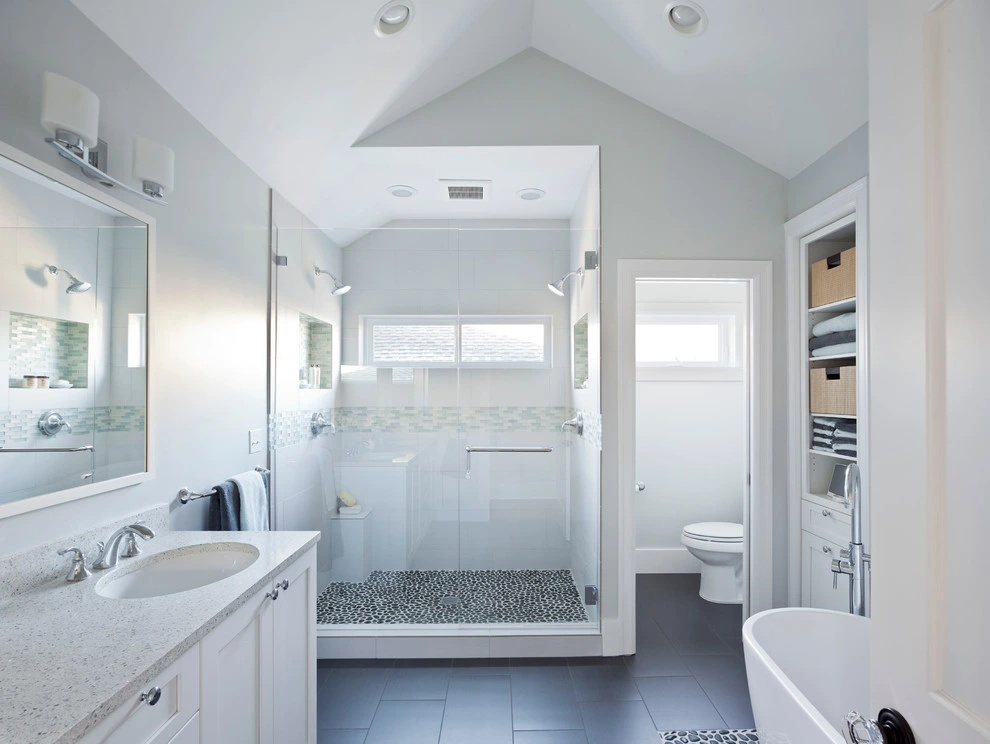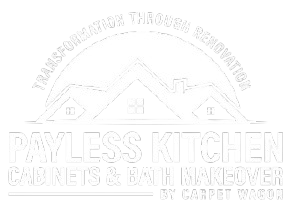Are you planning to update your bathroom but feeling uncertain about permit requirements? If you’re wondering, “Do I need a permit to remodel my bathroom?” you’ve come to the right place.
Navigating the complex world of home renovation permits can feel overwhelming. If you’re considering bathroom remodeling in Glendale, CA, understanding permit requirements is crucial for a successful project. In this guide, Payless Bath Makeover will explain how permit requirements work for bathroom renovations in Glendale.
What Is a Building Permit?
A building permit is an official approval from your local government that authorizes you to proceed with construction or remodeling work. Every jurisdiction enforces specific remodeling codes and legal remodeling guidelines. Glendale’s building department reviews all bathroom remodel permit applications to ensure compliance with safety standards.
Building permits ensure all work meets current safety standards and building codes to protect both homeowners and future occupants. Without proper permits, you might face fines, be required to undo completed work or encounter problems when selling your home. The permit process also helps maintain property values throughout the neighborhood by ensuring all renovations meet established standards.
Your renovation permit requirements may include:
- Detailed project plans: These must show exact measurements, materials to be used, and specific locations of all fixtures and electrical components. Your plans should include both existing and proposed layouts with clear annotations.
- Contractor licenses and insurance: Licensed contractors must provide proof of current state certification and liability insurance coverage. This documentation protects you from potential accidents or damage during construction.
- Proof of property ownership: You must submit documents showing that you own the property or have authorization from the owner. This typically includes property deeds or recent tax assessments.
- Permit fees: These vary depending on the project’s scope and local regulations. Most jurisdictions calculate fees based on the estimated project value or square footage being renovated.
- Inspection scheduling: You must coordinate multiple inspections throughout your project timeline. Inspectors will verify work at various stages, from rough plumbing to final completion.
Understanding Bathroom Remodel Permits and When You Need Them
“Do I need a permit to remodel my bathroom?” That depends on your specific project.
Most bathroom remodeling projects that involve structural changes, plumbing, or electrical work require permits. The complexity of your renovation determines the specific permit requirements.
Simple cosmetic updates usually don’t require permits. Minor changes, such as painting walls, replacing faucets without moving plumbing, installing new towel racks or mirrors, replacing cabinet hardware, and updating light fixtures when using existing wiring, usually don’t require permits, either.
You typically need permits when:
- Moving or adding plumbing fixtures
- Changing electrical wiring or adding outlets
- Modifying walls, windows, or ventilation
- Installing new shower or tub enclosures
- Upgrading the water heater
DIY vs. Professional Permits: Considering Your Support Options
You can choose to apply for bathroom remodeling permits yourself or work with a professional contractor who will handle the process. While DIY permit applications can save money up front, many homeowners find the expertise of a contractor invaluable for navigating complex requirements.
Understanding the pros and cons of DIY permits helps you decide the best approach for your project. Professional contractors typically handle permit applications as part of their service while providing numerous other benefits.
The benefits of hiring a professional include the following:
- Experience with local building codes: Contractors work with these regulations daily and understand how to interpret complex requirements. Their familiarity with local codes helps prevent common application mistakes that could delay your project.
- Established relationships with inspectors: Professional contractors regularly interact with local building departments and know what inspectors look for. This relationship can help streamline the inspection process and address concerns quickly.
- Knowledge of required documentation: Contractors maintain updated libraries of necessary forms and supporting materials. They can quickly assemble complete application packages that meet all current requirements.
- Efficient application processing: Years of experience mean contractors know exactly which department handles each type of permit. They understand how to prepare submissions that move smoothly through the approval process.
- Guaranteed code compliance: Professional contractors stay current with changing regulations and building standards. Their expertise ensures your renovation meets or exceeds all local requirements, protecting your investment.
The Bathroom Design Approval Process
Now that you know the answer to “Do I need a permit to remodel my bathroom?” let’s examine how the permit approval process works.
Getting bathroom design approval involves multiple steps that require careful attention to detail and patience. Plan ahead to avoid delays in your renovation timeline, as the approval process can take several weeks or even months, depending on your local building department’s current workload.
Understanding each phase of the approval process helps you create realistic project timelines and budget expectations. The key is to prepare thorough documentation and remain flexible throughout the review process.
The approval process includes:
- Initial plan submission: You or your contractor must submit detailed drawings showing all aspects of your proposed renovation. These plans should include precise measurements, fixture locations, electrical layouts, plumbing diagrams, and ventilation details. Your submission package must also include completed application forms and payment for all required fees.
- Document review: Building department officials carefully examine your plans for compliance with current codes and regulations. They check structural integrity, safety features, ventilation requirements, and accessibility standards. This review process typically takes several weeks, during which officials may contact you for clarification.
- Possible revision requests: The building department might require changes to your original plans to meet specific code requirements. Common revision requests involve ventilation specifications, electrical load calculations, or waterproofing details. You’ll need to update your plans accordingly and resubmit them for another review.
- Final approval: Once your plans meet all requirements, the building department issues your permit. This official document must be displayed at your project site throughout the renovation. The permit outlines the approved work scope and any specific conditions you must follow.
- Scheduled inspections: Your project requires multiple inspections at different stages of completion. These typically include rough-in inspections for plumbing and electrical work, moisture barrier verification, and a final inspection. Each inspection must be scheduled in advance and passed before moving to the next phase of construction.
Cost and Timeline Considerations
“Do I need a permit to remodel my bathroom?” If you answered yes, you need to begin budgeting and planning accordingly.
Home renovation licenses and permits significantly affect costs and schedules. Permit costs vary depending on location and project scope, typically ranging from a few hundred to several thousand dollars. Understanding these expenses from the start helps prevent budget surprises during renovation.
Factor these elements into your planning:
- Application fees
- Review periods
- Inspection costs
- Potential revision timelines
- The final approval wait time
Can You Acquire Emergency Bathroom Permits or Expedite the Process?
Sometimes, bathroom renovations cannot wait, especially when serious plumbing issues or safety hazards are involved. Many building departments offer expedited permit processing for emergency situations like severe water damage or failed plumbing systems.
While emergency permits typically cost more, they can save you time and prevent further damage to your home. If you need urgent bathroom repair, contact your local building department immediately.
Your Guide to Success With Payless Bath Makeover
“Do I need a permit to remodel my bathroom?” The answer depends on your specific project scope. Let our experienced team guide you through the permit process for your bathroom transformation.
Check out our small bathroom remodeling tips for additional insights. Payless Bath Makeover specializes in streamlined bathroom renovations that meet all local building requirements.
Are you ready to start your compliant bathroom remodel? Call (888) 389-9955 to discuss your Glendale, CA, project with Payless Bath Makeover today.
- One Piece vs Two Piece Toilet – What’s the Difference - April 30, 2025
- Bidet Seat vs Bidet Toilet – Choosing the Right One - April 30, 2025
- Best Materials for Your Bathroom Vanity Cabinets - March 19, 2025
